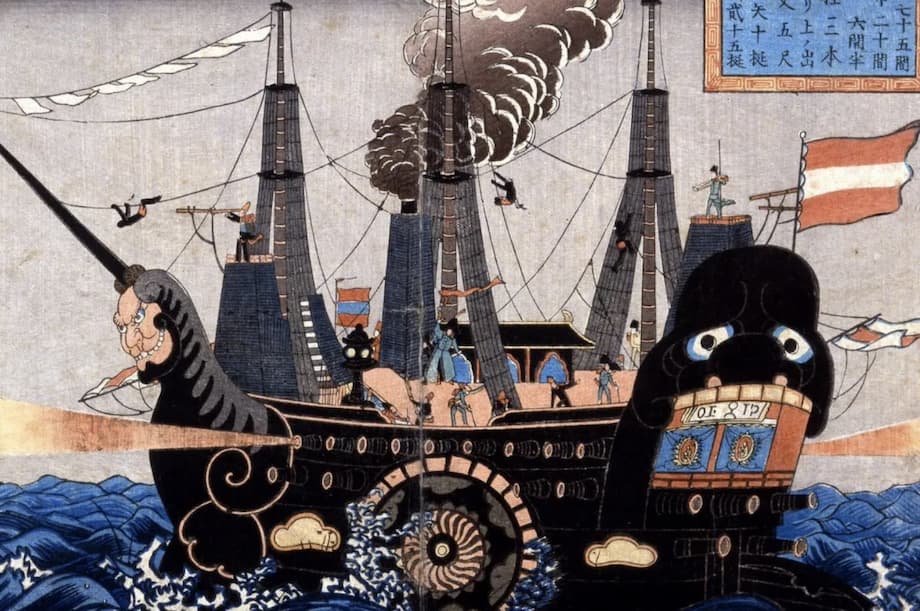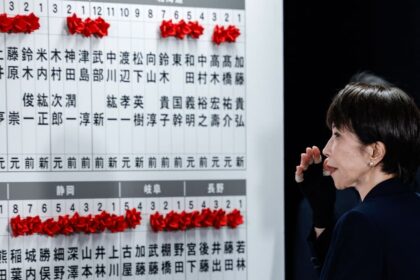Japan and the United States: A Trade Pact Ignites Old Wounds
The latest round of trade negotiations between Japan and the United States has set off a political firestorm in Tokyo, reviving memories of the “unequal treaties” that once defined East Asia’s relationship with Western powers. At the heart of the controversy is a disputed reduction in U.S. tariffs on Japanese automobile exports—a concession celebrated by Japanese officials but left unconfirmed in official American documents. The fallout has not only shaken Japan’s domestic politics but also cast a shadow over the future of the U.S.-Japan alliance and the global economic order.
- Japan and the United States: A Trade Pact Ignites Old Wounds
- What Sparked the Unequal Treaty Debate?
- Inside the Trump Trade Pact: What’s at Stake?
- Political Fallout in Japan: Nationalism and Rethinking Alliances
- Global Repercussions: A New Era of Economic Coercion?
- Japan’s Choices: Rethinking Foreign Policy and Economic Strategy
- In Summary
What Sparked the Unequal Treaty Debate?
Japanese trade negotiator Akazawa Ryosei returned to Washington for urgent talks after the Trump administration failed to confirm a key promise: reducing U.S. tariffs on Japanese cars from 27.5% to 15%. Prime Minister Shigeru Ishiba had touted this as a major win, but the absence of a written agreement left Japan with only verbal assurances. This ambiguity quickly became a political liability for Ishiba, who faced fierce questioning in the Diet (Japan’s parliament) and threats of a no-confidence motion if the tariffs were not actually reduced.
The controversy has revived the term “unequal treaty” in Japanese political discourse—a phrase historically associated with 19th-century agreements imposed on East Asian nations by Western powers, often under threat of force. Today, it reflects a sense of powerlessness and frustration among Japanese elites, who see the Trump administration’s tactics as reminiscent of those humiliating treaties.
Historical Echoes: What Are Unequal Treaties?
The term “unequal treaties” refers to a series of agreements signed in the 19th and early 20th centuries between Asian countries—such as Qing China, Tokugawa Japan, and Joseon Korea—and Western powers. These treaties were typically signed after military defeat or under threat, imposing obligations almost exclusively on the Asian side. Provisions included ceding territory, paying reparations, opening ports, relinquishing tariff control, and granting extraterritorial rights to foreigners. In Japan, the 1854 Convention of Kanagawa and the 1858 Harris Treaty marked the beginning of this era, forcing the country to open its markets and limit its sovereignty.
For Japan, the memory of these treaties is deeply embedded in national consciousness. The phrase “unequal treaty” is a powerful symbol of lost sovereignty and national humiliation. Its resurgence in the context of the Trump trade pact signals a profound anxiety about Japan’s standing in the world and its relationship with the United States.
Inside the Trump Trade Pact: What’s at Stake?
The Trump administration’s approach to trade has been marked by a policy of “reciprocal tariffs,” imposing high rates on trading partners and using the threat of even higher tariffs as leverage. In Japan’s case, the U.S. initially threatened a 27.5% tariff on automobile exports, later offering to reduce it to 15%—but only in exchange for significant Japanese concessions, including increased investment in the U.S. and expanded purchases of American agricultural products.
Prime Minister Ishiba’s government initially celebrated the deal, claiming it would protect Japan’s vital auto industry and bring stability after months of uncertainty. However, the lack of a written commitment from the U.S. quickly became a source of political vulnerability. Opposition leaders in Japan have seized on the issue, warning that reliance on unwritten promises from Washington is both risky and reminiscent of the country’s subjugation under past unequal treaties.
Economic Implications for Japan and Beyond
Japan is the world’s fourth-largest economy and a major exporter of automobiles, electronics, and machinery. The U.S. is its largest export market. According to the BBC, the new deal—if implemented—would make Japanese cars cheaper in the U.S. compared to rivals like China, potentially boosting Japan’s auto giants such as Toyota, Honda, and Nissan. In return, Japan has proposed investing $550 billion in the U.S. to build resilient supply chains in sectors like pharmaceuticals and semiconductors.
However, the deal is not without its critics. U.S. automakers have expressed concern that they will face higher tariffs on imports from their plants in Canada and Mexico compared to Japan’s 15% rate. Meanwhile, Japanese farmers worry about increased competition from American agricultural imports. The uncertainty surrounding the agreement has also rattled financial markets and raised questions about the stability of global trade rules.
Political Fallout in Japan: Nationalism and Rethinking Alliances
The controversy over the trade pact has had immediate political consequences in Japan. Prime Minister Ishiba’s leadership has come under fire, with opposition parties threatening a no-confidence vote if the promised tariff reductions do not materialize. Even members of Ishiba’s own party have criticized his handling of the negotiations, arguing that Japan should not accept unwritten deals from Washington.
The debate has also fueled nationalist sentiment. Some politicians have called for a more independent foreign policy, including reconsidering Japan’s security alliance with the U.S. and even exploring the possibility of an independent nuclear deterrent. The rise of the Sanseito party, which combines anti-immigrant and anti-American rhetoric, signals a shift in mainstream Japanese politics. While the public may be wary of drastic changes, the mainstreaming of “unequal treaty” rhetoric suggests that Japanese elites are rethinking the foundations of the U.S.-Japan alliance.
Security Tensions: The Alliance Under Strain
The trade dispute has spilled over into security issues. President Trump has publicly criticized the U.S.-Japan Security Treaty, arguing that it obliges the U.S. to defend Japan without reciprocal guarantees. This has added to Japanese anxieties about the reliability of American support, especially as the U.S. shifts its strategic focus to China and the Pacific. While Japan has increased its defense spending and allowed for collective self-defense, the Trump administration’s transactional approach has undermined trust in the alliance.
U.S. President Donald Trump said, “We have a great relationship with Japan, but we have an interesting deal with Japan that we have to protect them, but they don’t have to protect us.”
This sentiment has resonated with some Japanese politicians, who argue that Japan should take greater responsibility for its own defense and reduce its dependence on the U.S.
Global Repercussions: A New Era of Economic Coercion?
The U.S.-Japan trade dispute is not an isolated case. The Trump administration’s use of tariffs as leverage has affected countries around the world, from the European Union to Southeast Asia. In each case, the U.S. has threatened high tariffs, then offered reduced rates in exchange for significant concessions. Critics argue that this approach amounts to a new form of economic colonialism, imposing one-sided agreements that benefit the U.S. at the expense of its partners.
For example, Southeast Asian nations like Vietnam, Indonesia, and the Philippines have been pressured into signing agreements that grant the U.S. full market access with zero tariffs on American exports, while accepting higher tariffs on their own goods. This has weakened regional solidarity and undermined the principle of fairness in international trade.
Comparisons to 19th-Century Colonialism
Analysts have drawn direct parallels between the Trump administration’s tactics and the “gunboat diplomacy” of the 19th century, when Western powers used military and economic pressure to force Asian countries into signing unequal treaties. Today, economic power has replaced naval might, but the outcome is similar: countries are compelled to accept subordinate economic relationships with the U.S.
A commentary in ThinkChina argued, “The U.S.’s reciprocal tariff policy today can be likened to a 21st-century version of the unequal treaty. While technically bilateral agreements are reached through negotiations, in practice, the U.S. leverages its vast economic power and market access to pressure other countries into accepting unfavourable terms.”
This approach has also raised concerns about the long-term impact on the global economic order and the credibility of the U.S. in international trade. The World Trade Organization’s principles of non-discrimination and most-favored-nation treatment are being undermined, and trust in multilateral systems is eroding.
Japan’s Choices: Rethinking Foreign Policy and Economic Strategy
As the trade negotiations drag on, Japan faces difficult choices about its future. Should it continue to rely on the U.S. as its primary ally and economic partner, or should it seek greater autonomy and diversify its relationships? Some Japanese leaders have called for closer ties with Europe and other Asian countries, while others advocate for a more assertive stance in trade and security matters.
Japan is already a member of major regional trade agreements, including the Comprehensive and Progressive Agreement for Trans-Pacific Partnership (CPTPP) and the Regional Comprehensive Economic Partnership (RCEP). These frameworks offer alternatives to bilateral deals with the U.S. and could help Japan reduce its vulnerability to American pressure. However, the U.S. market remains vital for Japanese exporters, especially in the auto and electronics sectors.
Expert Perspectives: What Comes Next?
Experts are divided on the long-term implications of the Trump trade pact. Some argue that the deal, if implemented, will bring stability and certainty to global markets, allowing businesses to plan and invest. Others warn that the agreement is fundamentally unbalanced and could set a dangerous precedent for future trade negotiations.
Riley Walters, a senior fellow at the Hudson Institute, wrote, “U.S.-Japan negotiations will be an interesting case study. In some ways, other governments can learn how to negotiate with the Trump administration on trade and economic matters. But the relationship between the U.S. and Japan is also unique. Most countries do not share the same level of economic, security, or political relations that exist between the U.S. and Japan.”
Meanwhile, the mainstreaming of “unequal treaty” rhetoric in Japan suggests that the country’s elites are no longer taking American support for granted. The Trump administration’s transactional approach has forced Japan to reconsider its foreign policy options and to prepare for a more uncertain future.
In Summary
- The U.S.-Japan trade pact has sparked a political crisis in Tokyo, reviving memories of “unequal treaties” imposed by Western powers in the 19th century.
- Japan’s government faces domestic backlash over the lack of a written commitment from the U.S. to reduce auto tariffs, with opposition leaders threatening a no-confidence vote.
- The controversy has fueled nationalist sentiment and calls for a more independent Japanese foreign policy, including reconsideration of the U.S.-Japan security alliance.
- The Trump administration’s use of tariffs as leverage is seen by critics as a new form of economic colonialism, undermining multilateral trade rules and global trust.
- Japan must now decide whether to continue relying on the U.S. or to diversify its economic and diplomatic relationships, as uncertainty grows about the future of the alliance.












